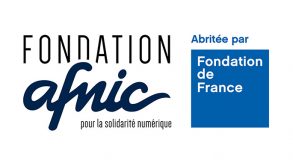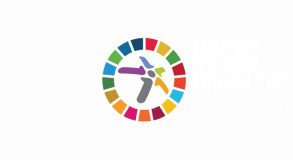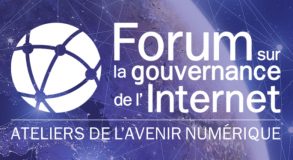Lucien Castex and Sandoche Balakrichenan represented Afnic on 16 and 17 October at the French-Japanese Internet Governance conference “Building trust from technical aspects to policies and concepts”. Co-organised by Afnic, Keio University X Dignity Center and the Embassy of France in Japan, the conference was held in Tokyo, Japan, and aimed to be a catalyst for deeper Franco-Japanese collaboration on critical Internet governance issues, on a technical level as well as in terms of public policy and partnerships.
More than twenty speakers were in attendance for the five complementary sessions exploring how to build trust within the Internet ecosystem, from technical foundations to policy frameworks:
1. Emerging technologies and AI governance: what parallel with Internet governance?
The discussions during this session chaired by Toshiba Jitsuzumi (Chuo University) highlighted the parallels between the Internet governance established at the time of the WSIS and contemporary challenges connected with the regulation of AI and emerging technologies, underscoring the relevance of multi-stakeholder models and open standards and their driving role in the Internet’s development.
2. Multi-stakeholder governance models
The second session, chaired by Jean-Baptiste Bordes (Embassy of France in Japan), discussed current tensions and challenges in the light of the 20-year review of the WSIS and the implementation of the Global Digital Compact. It highlighted the cooperation models behind the Internet’s success and the diversity of the models in particular – drawing on the examples of France and Japan – emphasising cooperation between governments, academia, private actors and civil society to guarantee a transparent and balanced Internet ecosystem.
3. How to introduce trust in the use of Internet
Chaired by Shigeya Suzuki (Keio University), this session examined the main challenges relating to trust online, particularly DNS security, authentication and identity management, in order to strengthen reliability and responsibility.
4. Cross-view on embedded human rights
Chaired by Lucien Castex (Afnic), this session gave the speakers the opportunity to talk about the intersection between digital technology and fundamental rights. How technical standards and norms, particularly the latest work from the IETF and ITU, can be reconciled with the protection of privacy, freedom of expression and inclusiveness in an interconnected world.
5. Special session on cross-border digital exchange and digital sovereignty
This special session, chaired by Keiko Okawa (Keio University), explored ways to promote international cooperation in terms of digital exchange while respecting national sovereignty and strengthening reciprocal trust. In particular it looked at the evolution of Internet governance with an exchange of views between IGF France and IGF Japan and a contribution from Jun Murai who shared his view of the Internet.
Over the course of the discussions, the speakers stressed the interest and relevance of exchange between Japanese and French experts and shared use cases. The participants also emphasised the need to build Internet governance at both local and international level. As France prepares for the G7 Presidency and less than two months from the WSIS+20 review process, integrating open standards, technical innovation and ethical governance is vital in order to strengthen trust and the resilience of the Internet infrastructure.
The conference ended with a call to strengthen Franco-Japanese cooperation on emerging technologies and Internet governance. Afnic CEO Pierre Bonis brought the session to a close with a video message: This conference reaffirmed Afnic’s mission to strengthen trust and the resilience of the Internet infrastructure through its dual role as domain name registry in France and a prominent player in Internet governance research.




